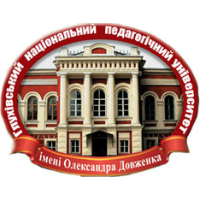Languages
ZAREMSKYI M. Y. Experience of V. Wundt psychological laboratory in Y. Kolubovsky’s receptions
It is emphasized that the epistemology of the last third of the XIXth century was focused on the scientific method development related to the orientation of rational knowledge, based on empirical experience, which would be ordered, objectified and generalized in the form of scientific theories.
A special place occupies the German philosopher and psychologist Wilhelm Wundt’ activity. He was a creator of the world’s first experimental laboratory for the study of mental processes, which was at the root of structuralism – the research method, main task of which was to clarify the structural components of consciousness, explain the nature of their structuring and the mode of interaction.
Yakiv Kolubovskyi underlined that as a natural researcher Wilhelm Wundt supported the physical and chemical directions and always clearly adhered to the models both in his physiological works and in the software installations, which were applied psychological laboratory (created by him in 1879). It became the most authoritative international center of experimental psychology at that time, where the senses, association, attention, memory, reaction time were studied.
The existence of both mental and physical principles does not deny, the impact of the physical on the mental is considered as one-sided. Wundt considers experimental psychology as a science that situated higher than materialism and idealism. The basis of his psychological views was the theory of psychophysical parallelism, which based on the ideas of mental and physiological processes, the ideal content of the psyche in its correlation with physiology as independent, parallel to the existing causal series. Summarizing the results of experiments, Wundt proposed the main types associations classification: verbal, based on stable speech bonds, external and internal, based on logical relations of the meanings. The word appeared in the laboratory as an object of experimental and psychological researches. It marked the important changes in the nature and directions of its work: after the sensory images as the primary components of self-observation speech components of consciousness, in particular, semantic and speech associations became the objects of analysis. Consequently, the Wundt’s ideas about the legitimacy of referring the studies of the structures of consciousness as components of the psyche to the experimental became important stimulating factors in the searching and exploration of certain elements of the psyche, their connections and methods of their structuring - of course, with the attention to the influence of mechanistic natural science on the implementation of this scientific program.
The main reason of the psychological laboratory foundation Y. Kolubovskyi considers Wundt's aspiration to transform and confirm psychology as an exact science that would ensure the synthesis of semantic, operative-technical and cognitive activity of the researcher. Under the influence of the achievements of the senses physiology in particular the pictures of "sensory mosaic," Wundt suggested his own psychological program, whose purpose was to find out the structure, composition, structure of consciousness with the help of introspection and auxiliary physiological devices.
The article deals with the comparative analysis and evaluation of individual conceptual programs for the development of new psychology – W. Wundt, F. Brentano, I. M. Sechenova, a description of the psychological laboratory, the organization of the experimenters’ international school and over the idea of introspection. Following the way of the Wundt’ studying at the end of the nineteenth century, Yakiv Kolubovskyi traced the questions of hypnotism and suggestions in articles and inquiries written by psychologists of that period. Noting that hypnotism has become a fashionable issue of psychology and psychiatry, the admiration of which had led to the fact that it became almost the only basis of psychology (Kolubovskyi observes that the last International congress of experimental psychology has paid attention to hypnotism in one of two sections. It was held in London, June 20-23, 1892), it is impossible not to notice its peculiar attraction for spiritism and other kinds of unscientific knowledge.
As an employee of the psychological laboratory, Yakшv Kolubovskyi emphasize the fact that Wundt, at the beginning of his scientific activity deals with the problems of physiology, namely studying the activities of excited systems, and especially the nervous system, which made an invaluable contribution to the work on the introduction of an experimental, first of all, mathematical, Quantitative method for the phenomena of the psyche studying. Wundt wanted to develop the Philosophy as purely "empirical" science and this desire was related him with positivists. According to Wundt, psychology, being an independent science, is also a philosophical discipline, since any scientific knowledge implies the mental process in the role of empirical basis. It is reconstructed on the basis of sensual material.
However, such a simplified understanding of mental processes could only lead to the loss of unconditionally leading positions in the study of the psyche in the future. As we can see, the unconditionally positive assessment of the Wundt’s methodology by Yakiv Kolubovskyi remained in the past. Instead, an objective experienced scientist’s balanced view on it appeared.
Key words: Y. Kolubovskyi, W. Wundt, psychology, intentionality, experiment, psychological laboratory, introspection.
- 792 reads





